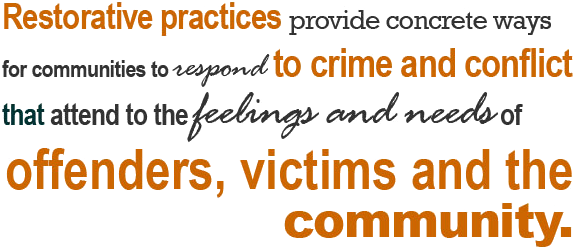Schools & Restorative Justice
Fighting The Schoolhouse-To-Jailhouse Pipeline With Restorative Justice
Zero Tolerance Across America
Zero tolerance discipline policies in schools have led to an alarming number of school-based arrests largely impacting youth of color. Youth arrested in school face the double punishment of arrest and adjudication through the juvenile justice system, and suspension and expulsion from school. Moreover, regardless of court outcomes, students must wait three to five years to go through a complicated process of getting their arrest record expunged.
Ending “Zero Tolerance” in Chicago Public Schools
The Chicago Public Schools is the third largest school district in the United States. CJYI, together with community and juvenile justice partners, celebrated a major victory with the passage of a new 2007-2008 Student Code of Conduct that eliminates zero-tolerance language. The new version of the Code includes an explicit commitment to restorative justice as an alternative to punitive discipline, and outlines specific practices including peacemaking circles, victim-offender conferencing, and peer juries.
CJYI is working with schools and communities across Chicago to ensure that administrators, teachers, students and parents have the training and support necessary to implement effectively restorative practices as alternatives to arrest, suspension and expulsion. CJYI provides school communities with introductions to restorative justice, trainings in peace-making circles, and technical assistance with implementing restorative alternatives.
CJYI is also working with the Community Justice Network for Youth of the Burns Institute to share the lessons learned from the Chicago victory with youth organizers from across the country who are waging their own campaigns against school zero-tolerance policies, disproportionate minority confinement and regressive juvenile justice legislation.

